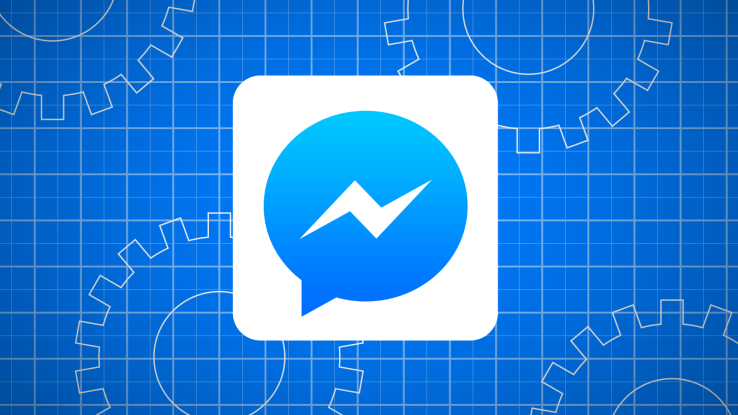Facebook Messenger accounts for 10% of global VoIP
Hello! We love TechCrunch, we are sure that you also read this resource. There almost every day useful materials are published that are not in the Russian-speaking space. We would like to introduce a translation of the material from TechCrunch, since it’s on a topic close to us - Facebook Messenger and IP-telephony. Posted by TechCrunch columnist Josh Constine.

@TechCrunch
Facebook Messenger wants to replace the phone, and not only SMS, but also voice calls. “Messenger accounts for 10% of VoIP (Voice Over IP),” said Mark Zuckerberg during a news conference on the company's financial activities for the 1st quarter of 2015. Zuckerberg said that since VoIP provides better call quality than traditional telephone services, the company expects this growth to continue at a very rapid pace.
Given that Facebook rolled out free calls only in April last year, the figure is pretty impressive. In addition, it shows that Messenger has actually become a competitor to Skype and other similar applications. It should be remembered that just yesterday, free VoIP calls appeared in the WhatsApp iOS version (for Android owners, this feature became possible last month).

@TechCrunch
Zuckerberg confirmed that Messenger and WhatsApp will remain separate applications and will not be integrated. In particular, he said: "One of our theories suggests that popularizing calls via VoIP requires a huge network of people capable of receiving such calls."
Zuckerberg believes that Messenger, with its 600 million users, and WhatsApp, with its 800 million users, together can reach the critical mass needed. In addition, this week Facebook introduced its new Caller ID application - Hello, which makes it easy to ignore traditional phone calls (we'll talk more about Hello a bit later). Today, about 45 billion messages a day are sent via Facebook, Messenger and WhatsApp.

@TechCrunch
With such a pace of development, it becomes obvious that messaging is Facebook's main asset, with the exception of China: in the United States, Messenger has long taken the lead, in Europe - WhatsApp, and only in China WeChat continues to be the most popular chat.
A feature of Messenger is that Facebook may not monetize it - because the application helps to popularize the social network, where the company makes money. Zuckerberg said: “We are not going to make paid messaging or calls. We are going to make free products of a higher quality than those for which you have to pay. ”
This is the unique strategy of Facebook - Messenger, with its free calls and messages, can easily crush countries where people have to pay for both. To earn money for the development of applications, having relied on their monetization, Facebook will be on a social network, which, in turn, will be popularized by free applications like Messenger and Hello. Here is such a cycle. By the way, in the 1st quarter of 2015 alone, Facebook earned $ 3.32 billion from advertising in its Facebook application.
Original TechCrunch Article
Translation: Rocket Callback
Photo: © TechCrunch

@TechCrunch
Facebook Messenger wants to replace the phone, and not only SMS, but also voice calls. “Messenger accounts for 10% of VoIP (Voice Over IP),” said Mark Zuckerberg during a news conference on the company's financial activities for the 1st quarter of 2015. Zuckerberg said that since VoIP provides better call quality than traditional telephone services, the company expects this growth to continue at a very rapid pace.
Given that Facebook rolled out free calls only in April last year, the figure is pretty impressive. In addition, it shows that Messenger has actually become a competitor to Skype and other similar applications. It should be remembered that just yesterday, free VoIP calls appeared in the WhatsApp iOS version (for Android owners, this feature became possible last month).

@TechCrunch
Zuckerberg confirmed that Messenger and WhatsApp will remain separate applications and will not be integrated. In particular, he said: "One of our theories suggests that popularizing calls via VoIP requires a huge network of people capable of receiving such calls."
Zuckerberg believes that Messenger, with its 600 million users, and WhatsApp, with its 800 million users, together can reach the critical mass needed. In addition, this week Facebook introduced its new Caller ID application - Hello, which makes it easy to ignore traditional phone calls (we'll talk more about Hello a bit later). Today, about 45 billion messages a day are sent via Facebook, Messenger and WhatsApp.

@TechCrunch
With such a pace of development, it becomes obvious that messaging is Facebook's main asset, with the exception of China: in the United States, Messenger has long taken the lead, in Europe - WhatsApp, and only in China WeChat continues to be the most popular chat.
A feature of Messenger is that Facebook may not monetize it - because the application helps to popularize the social network, where the company makes money. Zuckerberg said: “We are not going to make paid messaging or calls. We are going to make free products of a higher quality than those for which you have to pay. ”
This is the unique strategy of Facebook - Messenger, with its free calls and messages, can easily crush countries where people have to pay for both. To earn money for the development of applications, having relied on their monetization, Facebook will be on a social network, which, in turn, will be popularized by free applications like Messenger and Hello. Here is such a cycle. By the way, in the 1st quarter of 2015 alone, Facebook earned $ 3.32 billion from advertising in its Facebook application.
Original TechCrunch Article
Translation: Rocket Callback
Photo: © TechCrunch
